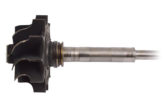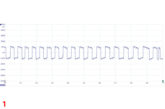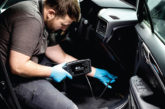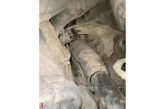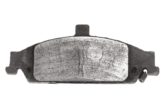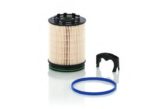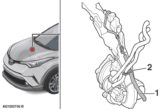
Turbochargers are inherently reliable, so when a customer tells you “the turbo’s packed up”, the cause of the failure will almost certainly be elsewhere in the engine.
All the systems that interact with the turbo can cause it to fail. Oil supply is the biggest turbo killer, but there are others as well. Restricted or blocked air intakes can create a vacuum, while a restricted or blocked DPF or Cat can generate excessive backpressure. Both these faults have the same effect – oil is drawn into the compressor housing, resulting in excessive smoke. Another reason for turbo failure is items becoming ingested and damaging the turbo compressor blades.
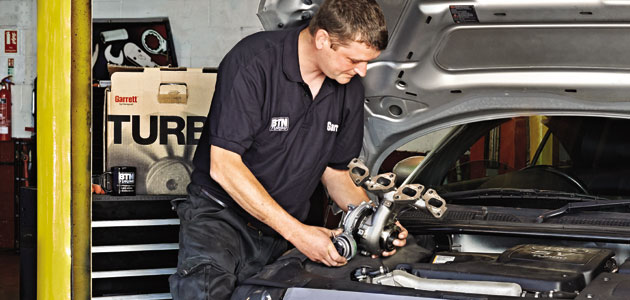
Critical instructions
BTN Turbo constantly seeks feedback from workshops, and combines this information with warranty claim details to identify the turbos most susceptible to engine-related problems. The company then produces critical instructions and makes them available for free on its website. To help prevent the same problem recurring, our advice is to regularly check these bulletins prior to fitting a replacement turbo.
The most viewed and downloaded critical instruction is for the PSA 1.6 HDi engine. As we’ve already covered that in a technical article for PMM in the past, let’s take a look at some of BTN Turbo’s other ‘popular’ critical instructions.
STUCK EGR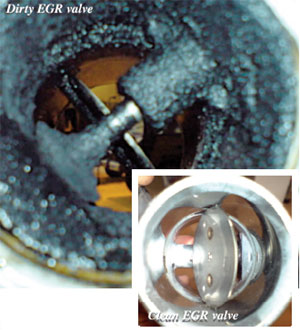 A major culprit is the EGR valve in the exhaust system of the Vauxhall Astra, Corsa, Combo and Meriva 1.7D. Carbon/exhaust soot gradually builds up on the EGR valve, which makes it stick, rapidly leading to turbocharger damage.
A major culprit is the EGR valve in the exhaust system of the Vauxhall Astra, Corsa, Combo and Meriva 1.7D. Carbon/exhaust soot gradually builds up on the EGR valve, which makes it stick, rapidly leading to turbocharger damage.
To prevent it happening again, BTN Turbo advises that you remove the exhaust manifold, check for excessive carbon/soot build up and clean/replace the EGR valve as necessary.
RESTRICTED BREATHING
The engine breather system for some BMW (and Land Rover) diesel engines can become clogged over time, restricting flow and increasing sump pressure. When this happens the turbocharger becomes overloaded with oil and the excess passes into the exhaust and air intake systems. The customer suddenly notices blue engine smoke.
Breather filter replacement
This is one of those odd problems; it can show up after a new turbo is fitted, but might not have been apparent before. The customer may think there’s a problem with the turbo, but in truth the engine needs a new breather filter. BTN Turbo recommends fitting a new breather filter when you replace the turbocharger.
“This is one of those odd problems; it can show up after a new turbo is fitted, but might not have been apparent before.”
DEBRIS DAMAGE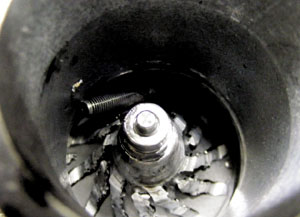 A small item, such as a nut or a washer, can quickly do a significant amount of damage to turbocharger vanes. With bent, broken or sometimes totally destroyed vanes, the turbo can’t produce boost pressure and may even jam.
A small item, such as a nut or a washer, can quickly do a significant amount of damage to turbocharger vanes. With bent, broken or sometimes totally destroyed vanes, the turbo can’t produce boost pressure and may even jam.
It can happen with almost any turbo, but some vehicles seem more prone to it. BTN’s critical instruction for the VAG 1.9TD recommends removing the air intake and engine breather pipework, between the turbo and air filter box.
Check carefully inside for any debris or dirt and clean or replace the pipework. Any item sucked into the turbo means it will have a very short service life, and could soon be back in your workshop.
OIL PROBLEMS – THE BIGGEST TURBO KILLERS
The final BTN critical instruction we’re featuring in this article represents two of the main turbo killers – oil starvation and oil contamination. The instruction is for the Ford Transit 2.5LD, and warns about the oil feed system.
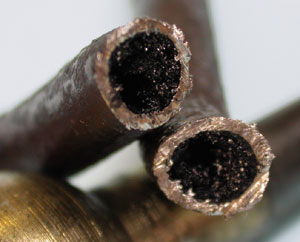 This can get blocked over time, restricting the oil flow to the turbo. Abrasive contaminants collect in the sump, so the turbo suffers both a lack of supply and bearing damage. BTN recommends removing and cleaning the sump, and replacing the oil strainer and feed pipe when you change the turbo on this application.
This can get blocked over time, restricting the oil flow to the turbo. Abrasive contaminants collect in the sump, so the turbo suffers both a lack of supply and bearing damage. BTN recommends removing and cleaning the sump, and replacing the oil strainer and feed pipe when you change the turbo on this application.
Oil starvation, oil contamination and oil leaks, are responsible for the vast majority of turbo failures. So even if the vehicle you’re working on isn’t covered by one of BTN’s critical instructions, checking the oil supply is vital to help avoid a repeat of the turbo failure.
Turbocharger expertise
BTN Turbo is one of the UK’s largest independent turbo distributors. It keeps 18,000 turbos in stock from all the major manufacturers, ready for next day delivery to your factor. The BTN Turbo website has a wealth of information to help you diagnose turbo faults, and reduce the risk of them recurring.
YOU CAN FIND OUT MORE TECHNICAL HINTS AND ADVICE BY VISITING: WWW.BTNTURBO.COM

